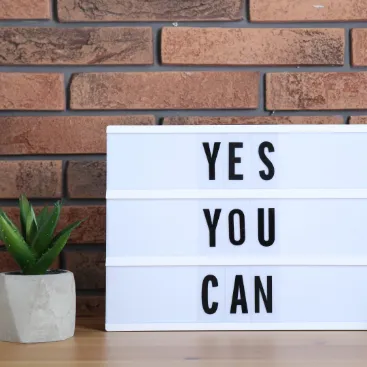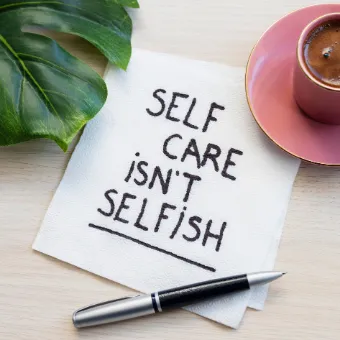Mental Health Awareness Week has been celebrated every year in May since 2001; its aim is to raise awareness and educate on the importance of having good mental health.
The charity that launched the event, The Mental Health Foundation, continue to bring this to light by setting up a different theme each year based on current issues. For example, last year’s topic for 2022 was ‘Loneliness’, which was one of the many impacts of the Covid-19 era due to not being able to socialise with people during that time.
Click here to read our article from last year, where we have put together a list of apps to help people connect with others in common:
The theme for 2023 is ‘Anxiety’.
In this unknown world around us, anxiety is a true impulse for all. According to the Mental Health Foundation, more than a third of adults in the UK are anxious about their financial situation – understandably due to the ongoing cost-of-living crisis.
Many people find themselves battling with a variety of concerns behind closed doors – this can be related to work troubles or personal matters at home (such as the cost-of-living crisis). It is important to remember that this could be a colleague or a manager at work, so it’s vital to recognise and respond to the signs of anxiety – for yourself and other people around you.
Here are some common signs to look out for:
Signs of Anxiety at work: |
A decrease in performance |
Frequent absences at work |
Physical complaints, like sweating, upset stomach, and not sleeping well (without another reason) |
Not showing involvement in work |
Poor job productivity |
In this blog, we will be going through some tips on how to overcome anxiety in the workplace. We can spend a lot of time at our workplace, so it’s essential to feel at ease while on the job.
Practice deep breathing techniques

This is a common tip as it can help you control your worries.
If you sense your anxious feelings triggering, take a moment away from your desk to try and focus on your breathing. Breathe in and out and concentrate on the feeling of your body.
The Mental Health Foundation recommend a particular method called the 4-7-8 breathing technique. Here’s how you can achieve this:
· Close your mouth and quietly breath in through your nose,
· Count to 4 in your head.
· Hold your breath and count to 7.
· Breathe out through your mouth, making a whoosh sound while counting to 8.
· Repeat three more times for a total of four breath cycles.
Take breaks as necessary

It is essential to take breaks throughout your day and do whatever helps you settle down and re-charge.
· Take a quick walk around the block, walk your dog, or grab a quick coffee!
· Go to the toilets and splash some water on your face
· Take some time to sit quietly in a quiet space – whether that’s a breakout area, or a café if your workplace has one.
Replace negative thoughts with positive self-talk

The more negative things you tell yourself, the worse your anxiety may become. Instead, try replacing those with positive affirmations.
Tell yourself that you can do whatever task you under-take, that you can handle anything that comes your way and that it’ll all be okay in the end.
This will help you feel more motivated to get the work done, and most importantly to feel more accomplished about it afterwards!
Reach out for support

Not everyone will be comfortable with this. In fact, most people tend to hide their feelings from others in fear that they’ll feel belittled.
No matter how big or small the situation is, every feeling is valid. Sometimes, even just expressing your feelings with someone can help you feel more at ease. This can be a simple conversation with whoever you feel most comfortable talking to – such as your manager, a co-worker, or your HR team.
If your workload is bigger than you can handle, reach out to your team members, and request a helping hand to take the pressure off. Speak to your manager and see if any tasks can wait for another day and focus on the priorities.
Always include self-care on your to-do list (and place it at the top!)

To help manage and feel less prone to anxiety at work, you should always take care of yourself outside of work.
Make sure you get enough sleep, so you feel refreshed the next day. Seven or more hours of sleep is recommended for an average adult.
Stay hydrated by drinking plenty of water throughout the day. After your morning dose of caffeine, instead of drinking more coffee try and substitute with water or juice!
One more thing to ensure is that you get plenty of exercise. This can be by going for a walk during your breaks, or simply move around more in the office or in your house.
If you live local enough to your office, try and walk or even cycle to work, instead of driving or taking public transport – not only will this help your self-care routine, but it’ll also save money and the environment!
If you need to, seek professional help

If your anxiety is much more severe and is significantly impacting your daily routine, you may need to consider seeking professional help.
Your GP, a therapist or counsellor can offer expert assistance as you work through your anxiety and can assist you in developing coping mechanisms.
If this is what you feel you may need, make sure you speak to your employer, so they are aware of what’s happening and figure out how to accommodate this in your work schedule.
Conclusion
There are many ways to help tackle anxiety, these were just some of the main aspects. Different people may have their own approaches that help them cope, and that’s okay. Everyone is different.
You can take away these tips to remember next time you’re feeling anxious or struggling to cope, there are things you can do. You can also share them with your team or co-workers to help support them through challenging times or to improve their wellbeing.
Always check on your colleagues, managers, and others around you. Sometimes, a simple ‘how are you?’ can make someone’s day a little brighter.
If you’re looking for further research, or if you would like to find out how to get involved in Mental Health Awareness week plus other events, take a look at the Mental Health Foundation website to explore more information.
https://www.mentalhealth.org.uk/

Sources:
https://asana.com/resources/work-anxiety
https://www.priorygroup.com/blog/what-to-do-if-you-feel-too-anxious-to-work
